Workshops/Tutorials
Tutorial
A Tutorial Introduction to Reinforcement Learning
Organizers
Mathukumalli Vidyasagar (IIT Hyderabad, India)
Statement of Objectives
Reinforcement Learning (RL) is one of the fastest-growing parts of Machine Learning (ML) and Artificial Intelligence (AI). The objective of the tutorial is to familiarize participants with one particular approach to RL, based on formulating it as a Markov Decision Process (MDP) with unknown dynamics. Other approaches, such as bandit problems, will not be covered.
Intended audience
The intended audience would consist of professors and graduate students, as well as industrial practitioners. The audience is expected to be familiar with the basics of Markov processes, such as the state transition matrix and the stationary distribution. Other required background will be covered during the tutorial.
Speakers
Mathukumalli Vidyasagar (IIT Hyderabad, India)
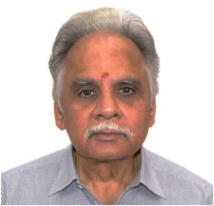
Mathukumalli Vidyasagar was born in Guntur, India on September 29, 1947. He received the B.S., M.S. and Ph.D. degrees in electrical engineering from the University of Wisconsin in Madison, in 1965, 1967 and 1969 respectively. Between 1969 and 1989, he was a Professor of Electrical Engineering at Marquette University, Concordia University, and the University of Waterloo. In 1989 he returned to India as the Director of the newly created Centre for Artificial Intelligence and Robotics (CAIR) in Bangalore. In 2000 he moved to the Indian private sector as an Executive Vice President of India's largest software company, Tata Consultancy Services. In 2009 he retired from TCS and joined the Erik Jonsson School of Engineering & Computer Science at the University of Texas at Dallas, as a Cecil & Ida Green Chair in Systems Biology Science. In January 2015 he received the Jawaharlal Nehru Science Fellowship and divided his time between UT Dallas and the Indian Institute of Technology Hyderabad. In January 2018 he stopped teaching at UT Dallas and continues his association with IIT Hyderabad. Since March 2020, he is a SERB National Science Chair. His research interests are in the broad area of system and control theory, and its applications. At present he is exploring whether ideas from statistical learning theory can be applied to problems of reinforcement learning.
Vidyasagar has received a number of awards in recognition of his research contributions, including Fellowship in The Royal Society, the world's oldest scientific academy in continuous existence, the IEEE Control Systems (Technical Field) Award, the Rufus Oldenburger Medal of ASME, the John R. Ragazzini Education Award from AACC, and others. He is the author of thirteen books and more than 150 papers in peer-reviewed journals.
Program
| 13:00~16:30 | 1. Brief review of Markov processes 2. Markov value processes; iterative methods for solution 3. Markov decision processes: 3.1 Optimal policy determination via the Bellman iteration 3.2 Q-Learning 3.3 Temporal difference learning 4. Applications 4.1 Game-Playing: Monte Carlo Tree Search (MCTS) algorithm 4.2 Autonomous navigation |
Workshop 1
Expectations toward Next-Generation Control Technologies to Support Industry in the Future
Organizers
Shigemasa Nakagawa, NIPPON STEEL TEXENG. CO., LTD.
Kenji Ikeda, Tokushima University. (Co-organizer)
Hiroshi Kitada, NIPPON STEEL CORPORATION. (Co-organizer)
Statement of Objectives
Based on the changing needs for control technology on the industrial side, the current status and future prospects in several industry sectors and requests and expectations to the academic side will be presented and discussed to help the development of next-generation control technologies.
Intended audience
Control researchers and engineers in industry and control researchers at universities, researchers interested in applications, and young researchers.
Speakers
Yuji Yasui, Honda R&D Co., Ltd.
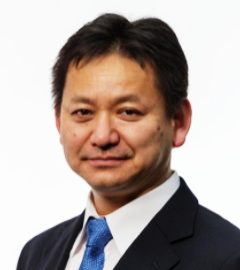
Yuji Yasui received the B.E. and M.E. degrees in mechanical engineering from Tokyo University of Science, Japan, in 1992 and in 1994, and the Ph.D degree from Sophia University, Japan, in 2012. He joined Honda R&D Co., Ltd in 1994 and has been researched powertrain control for low-emission vehicles and HEVs, traction control for F-1 racing car, transmission control and device control by using adaptive control, model predictive control, neural network, etc. He is currently an executive chief engineer in research area for automated driving and advanced driving assistance system using AI and advanced control technologies.
Naoya Yamato, ENEOS Corporation.
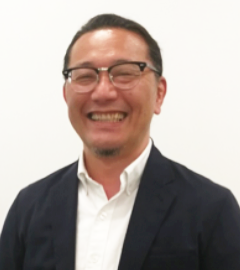
Naoya Yamato received the master's degrees in control engineering from Kyushu Institute of Technology in 1997. After completing his studies, he joined ENEOS Corporation (Mitsubishi Oil at that time), where he was engaged in process control and operation optimization, including DCS, APC, and RTO, as well as operation technology (OT) system network security. As manager of the Refining group, he also has experience working on the operation sites of CDU, VAC, FCC, Coker, and others. Currently, as Deputy General Manager of the Mechanical Engineering Department, he is in charge of introducing digital technology to improve equipment reliability and create a better working environment at the refinery. His recent hobbies are taking a sauna and Retr0bright on SNESs.
Hiroshi Kitada, NIPPON STEEL CORPORATION.
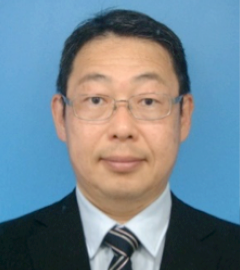
Hiroshi Kitada received the BS and MS from Tokyo University in 1989 and 1991, respectively, and received PhD from Kyoto University in 2005. He joined Ex-Sumitomo Metal Industries Co. Ltd. in 1991 and currently he works for Nippon Steel Corporation since 2012. He is currently a principal researcher of Process Research Laboratories in Nippon Steel Corporation. His research area is for control technologies in steel making processes, especially control design and data science in continuous casting. He is a member of SICE, ISIJ, and ISCIE.
Tokujiro Horikawa, Toshiba Mitsubishi-Electric Industrial Systems Corporation.
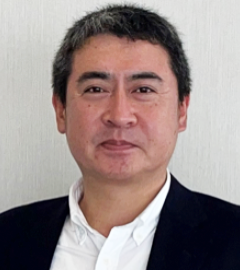
Tokujiro Horikawa received the M.S. in information science from Japan Advanced Institute of Science and Technology, Ishikawa prefecture, Japan, in 1999 and joined Toshiba Corporation in the same year. After working for Toshiba GE Automation Systems Corporation, he is currently with Toshiba Mitsubishi-Electric Industrial Systems Corporation (TMEIC). Since joining Toshiba, he has been engaged in application engineering of electrical and automation systems for steel plants. He is the Chief Engineer of TMEIC and Project Manager of hot rolling mill projects. He served as Chair of the Technical Committee on Control Technology of the SICE Control Division (2019). He is Co-Chair of the Industry Subgroup, Steel Manufacturing Processes, of the IFAC 2023 Industry Group, and a member of the Association for Iron & Steel Technology in the United States.
Panelists
Tatsuya Suzuki, Nagoya University.
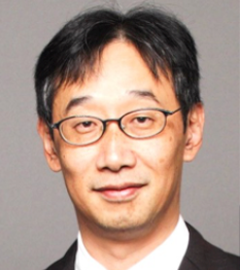
Tatsuya Suzuki was born in Aichi, JAPAN, in 1964. He received the B.S., M.S. and Ph.D. degrees in Electronic Mechanical Engineering from Nagoya University, JAPAN in 1986, 1988 and 1991, respectively. From 1998 to 1999, he was a visiting researcher of the Mechanical Engineering Department of U.C.Berkeley. Currently, he is a Professor of the Department of Mechanical Systems Engineering, Vice Dean of Graduate School of Engineering,Nagoya University. He also has been a Principal Investigator in JST, CREST in 2013-2019. He won the best paper award in International Conference on Autonomic and Autonomous Systems 2017 and the outstanding paper award in International Conference on Control Automation and Systems 2008. He also won the journal paper award from IEEJ, SICE and JSAE in 1995, 2009 and 2010, respectively. His current research interests are in the areas of analysis and design of human-centric intelligent mobility systems, and integrated design of transportation and smart grid systems.
Yoshiyuki Yamashita, Tokyo University of Agriculture and Technology.
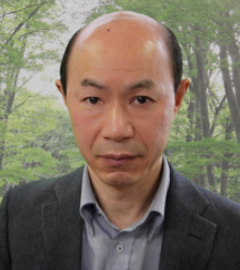
Yoshiyuki Yamashita received his Ph.D. degree in Chemical Engineering from Tohoku University, 1987. Since 2007, he is a professor at Tokyo University of Agriculture and Technology. His research interests include process systems engineering, computer-aided process engineering, process control, and smart manufacturing. Dr. Yamashita currently serves as vice-president of SICE, president of PSE community, Japan, president of Virtual Engineering Community, and vice-president of Thailand-Japan smart industrial safety consortium.
Akira Kitamura, Yamato University.
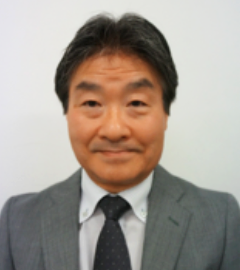
Akira Kitamura was engaged in the research and development of control algorithms for steel manufacturing processes at Kobe Steel, Ltd from 1978 to 2002. He was a professor at Tottori University from 2002 to 2020. Currently, he is a professor at Yamato University and is interested in manufacturing information theory and intellectual systems through cooperation and competition between humans and systems.
(Co-)Chairs
Kenji Ikeda, Tokushima University.
Shigemasa Nakagawa, NIPPON STEEL TEXENG. CO., LTD.
List of topics
1. Expectations toward Next-Generation Control Technology to Support Mobility in the Future
2. Uses of Digital Technology, Automatic Drone Control, AI-based Corrosion Diagnosis and Anomaly Detection in the Chemical Industry
3. Challenges in Control Technologies for the Future of the Steel Industry
4. Current Status and Future Vision of Large-scale Plant Control Systems
Program
| 13:00~13:05 | Opening remarks | ||||||
| 13:05~13:40 <Topic1> |
|
||||||
13:40~14:15 <Topic2> |
|
||||||
| 14:15~14:35 | Coffee break | ||||||
| 14:35~15:25 <Topic3, Topic4> |
|
||||||
| 15:25~15:50 | Panel discussion | ||||||
| 15:50~15:55 | Concluding remarks |
Workshop 2
Control and Optimization for Advanced Wind Energy Systems
Organizers
Naoyuki Hara, Osaka Metropolitan University.
Co-organizers
Naoki Hayashi, Osaka University, Japan.
Statement of Objectives
We live in the middle of an era of energy transition from fossil fuel to renewable energy.
The reasons behind this are that realizing a carbon neutral society is urgent and the fact that the cost of renewable energy is becoming more competitive than other energy resources. Wind energy is one such renewable energy and world installed wind energy capacity has been increasing rapidly. At the end of 2020, Japan had a total wind energy capacity of around 4.4 GW - Japan plans to install 35 to 45 GW offshore wind energy (including fixed-bottom and floating types) by 2040. The use of wind energy involves wide ranges of engineering and science branches as well as political policy and public acceptance.
This workshop mainly focuses on the control aspect of wind energy systems, and provides several research topics ranging from individual wind turbine control to wind farm control and optimization. Various modeling, analysis, optimization, and design techniques in control engineering have the possibility to improve wind turbine/farm performance in many aspects such as improving power capture, reducing fatigue loading, and supporting grid stability.
Since not only the technological aspect (including control) but also public acceptance is an important factor for successful wind energy projects, the local acceptance issue is also addressed.
Intended audience
Anyone who is interested in wind turbine/farm control and/or public acceptance of wind energy projects. Exposure to basic knowledge of control engineering will help with ease of understanding.
Speakers
Naoyuki Hara, Osaka Metropolitan University.
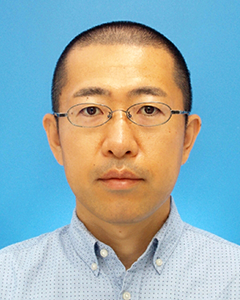
Naoyuki Hara received B.Eng. and M.Eng. degrees from Tokyo Metropolitan Institute of Technology in 2003 and 2005, respectively, and the D.Eng. degree from Tokyo Metropolitan University in 2008. He is currently an Associate Professor of Department of Electrical and Electronic Systems Engineering, Osaka Metropolitan University. His current research interests are in the field of control theory/applications and wind turbine control.
Naoki Hayashi, Osaka University.
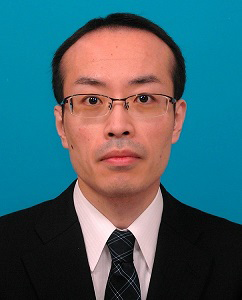
Naoki Hayashi received the B.E., M.E. and Ph.D. degrees from Osaka University in 2006, 2008 and 2011, respectively. He was a Research Assistant at Kyoto University in 2011. From 2012 to 2020, he was an Assistant Professor at Osaka University. He is currently an Associate Professor at Osaka University. His research interests include cooperative control and distributed optimization.
Memi Motosu, Nagoya University of Economics.
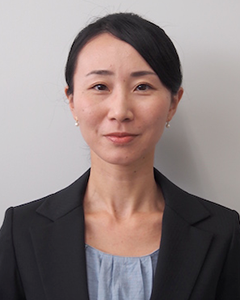
Memi Motosu received Ph.D. degree in Interdisciplinary Information Studies from the University of Tokyo in 2013. She served as an assistant professor from 2013 to 2015 and a project lecturer from 2015 to 2018 in Co-development of Offshore Wind Projects and Local Communities, Endowed Research Division, Nagoya University, and a project lecturer from 2018 to 2019 in Graduate School of Environmental Studies, Nagoya University. She is currently an associate professor at Nagoya University of Economics. Her research interests are social acceptance of wind energy projects, consensus building and sustainable development. She received Paper Award in 2022 from JWEA. She is a member of IEA Wind Task 28.
Ryozo Nagamune, The University of British Columbia.
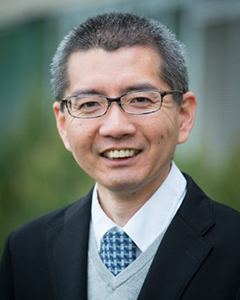
Ryozo Nagamune received B.Eng. and M.Eng. degrees from Osaka University, Japan, in 1995 and 1997, respectively, and Ph.D. degree from the Royal Institute of Technology, Stockholm, Sweden, in 2002. From 2003 to 2005, he was a Post- Doctoral Researcher at the University of California at Berkeley, CA, USA. In 2013, he was a Visiting Researcher with the National Renewable Energy Laboratory, National Wind Technology Center, Golden, CO, U.S.A. He has been with the Department of Mechanical Engineering, the University of British Columbia, Vancouver, BC, Canada, since 2006, where he is currently a Professor. Dr. Nagamune research interests include robust control, floating offshore wind turbine and farm control, control of solar thermal systems, and automotive engine control. He is serving as an Associate Editor of ASME Journal of Dynamic Systems, Measurement, and Control. He is the Chair of the IEEE Joint Chapter of Control Systems, Robotics, and Automation, and Systems, Man, and Cybernetics Societies in Vancouver Section. He held the Canada Research Chair, Tier 2, in Control Engineering in 2013-2018. He is a registered professional engineer in the province of British Columbia.
Yasunori Nihei, Osaka Metropolitan University.
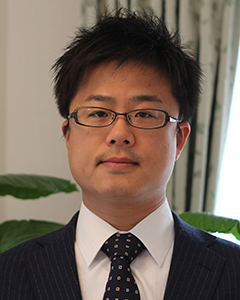
Yasunori Nihei received the bachelor's degree in engineering from Doshisha University in 2002, and the master's degree and the Doctoral degree in engineering from Tokyo University in 2004 and 2007, respectively. Subsequently, he served as a researcher in National Maritime Research Institute, Japan from 2007 to 2008. He is currently an associate professor in the Department of Marine System Engineering, Osaka Metropolitan University. His research interests include ocean engineering, marine hydrodynamics, control system of the marine devices. He is now developing some automated vessels for aquaculture farming, a quad-maran automatic navigation vessel for water quality observation and an automated vessel for feeding. Also, he organizes a research center for aquaculture initiatives in Osaka Metropolitan University since 2019.
Tomonori Sadamoto , The University of Electro-Communications.
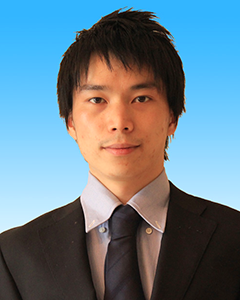
Tomonori Sadamoto received the Ph.D. degree from the Tokyo Institute of Technology, Tokyo, Japan in 2015. From 2015 to 2016, he was a visiting researcher at School of Electrical Engineering, Royal Institute of Technology, Stockholm, Sweden. From 2016 to November 2018, he was a specially appointed assistant professor with the Department of Systems and Control Engineering, Graduate School of Engineering, Tokyo Institute of Technology. Since November 2018, he has been Assistant Professor with Department of Mechanical and Intelligent Systems Engineering in the University of Electro-Communications. In 2014, he was named as a finalist of the 13st European Control Conference Best Student-Paper Award. In 2020, he received IEEE Control Systems Magazine Outstanding Paper Award.
Tomoka Tsuya , Osaka Research Institute of Industrial Science and Technology.
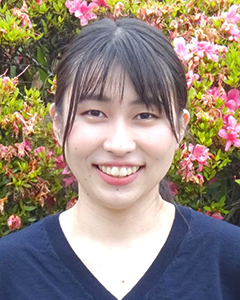
Tomoka Tsuya received the B.Eng., M. Eng., and Ph.D. degrees from Osaka Prefecture University in 2017, 2019, and 2022, respectively. Currently, she works at Osaka Research Institute of Industrial Science and Technology as a researcher. Her research interests include preview control and floating offshore wind turbine control.
List of topics
1. Individual Wind Turbine Control
• Basics of Wind Turbine Control (by N. Hara; 30 min incl. discussion)
• Blade Pitch Controller Design Using Wind Preview Information (T. Tsuya; 30 min incl. discussion)
• Scale Model Testing for Floating Offshore Wind Turbines (Y. Nihei; 20 min incl. discussion)
2.Wind Farm Control/Optimization
• Distributed Optimization in Cooperative Control of Wind Farms (by N. Hayashi; 30 min incl. discussion)
• Real-time Repositioning of Floating Offshore Wind Turbines for Wind Farm Power Maximization (by R. Nagamune; 30 min incl. discussion)
• Enhancing Controllability of DFIG-Type Wind Farms Against Parametric Resonance (T. Sadamoto; 30 min incl. discussion)
3. Social Acceptance
• Local Acceptance of Wind Energy Projects (by M. Motosu; 30 min incl. discussion)
Program
| 13:00~13:05 |
|
||||||||||||
| 13:05~14:25 <Topic1> |
1. Individual Wind Turbine Control
|
||||||||||||
| 14:25~14:35 | Coffee break | ||||||||||||
14:35~15:35 <Topic2> |
2. Wind Farm Control/Optimization
|
||||||||||||
| 15:35~15:45 | Coffee break | ||||||||||||
| 15:45~16:45 <Topic2, Topic3> |
3. Social Acceptance
|

